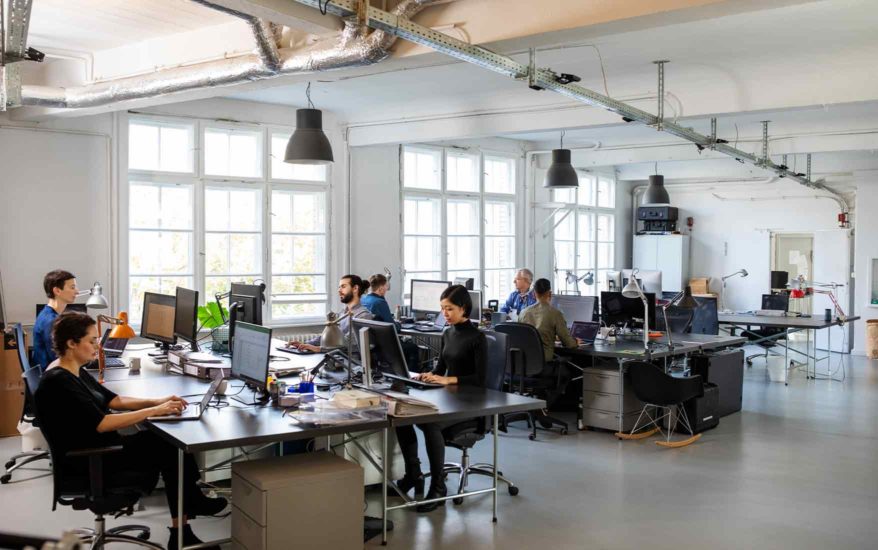
Love it or hate it, flexible working is here to stay. And the benefits go beyond the opportunity to work in your pyjamas. Flexibility in the workplace is creating a whole host of positive effects for businesses and individuals alike.
It’s been suggested that more flexibility in working times and places can help women break the glass ceiling, and many report a link between new working practices and increased productivity.
Rounded Benefits
Saving Space
Besides these encouraging impacts on employee engagement and wellbeing, there is often a clear business case for introducing new ways of working. All of the research that we’ve carried out into workplace occupancy reveals that average desk utilisation sits at only 40%, leaving the majority of a company’s expensive space unused.
But the move to shake up the traditional office layout is not always greeted with a joyful response: certainly, the benefits of flexibility don’t always happen overnight.
Supporting Office Workers
Whilst reducing the number of desks in favour of more collaborative spaces is a great first step towards creating a more vibrant and interactive workplace, it can feel precarious to have fewer desks than people. Employees who work in offices where new layouts have been introduced sometimes feel that not enough attention has been paid to what their everyday experience of the new office will be like. Many report that they can feel uncomfortable without the security of a desk to call their own, and this is true even of some employees who rarely use a desk for most of the week.
These issues don’t have to spell an end to grand designs for a more modern workplace, but they certainly should be addressed. Our innovation may come from risk, but risk most often comes from comfort – and so individuals need to feel relaxed and secure within their office space. The last thing organisations want to create is a feeling of homelessness, arising when people aren’t certain they will be able to find a desk. This is where technology such as a desk booking platform becomes essential, tackling people’s fear by allowing everyone to secure their working space before they get to the office. It’s really important that any booking platform is as simple and intuitive as possible, and accessible through multiple channels such as mobile apps, MS Office or web application.
Desk Booking Software
At Condeco we’ve just gone one step further, by linking our desk booking software to our new Desk Screens, small wireless displays fixed to each desk. One of the ideas behind this step is that employees can now easily see which desk is booked, by who, and when. This means they can avoid the embarrassment of turning up to find someone working in their pre-booked space, or of being sent packing when someone turns up who’s already reserved that desk. We’ve worked hard to give these screens features, such as a clear traffic-light display system, to help do away with any uncertainty as to whether a desk is booked or not.
Attaching screens to each desk, clearly displaying who will be working there, also contributes to efficient navigation of the office, helping individuals to find any colleague they need to speak to. It’s good for all concerned to have an office which is responsive to how employees want to use it; but as working habits change this can result in a more complex office environment where it can be harder to find the right people and to feel in control of your working space. If your organisation wants to realise the benefits of a flexible workplace, accompany your changes with tools that keep the office experience as simple and intuitive as possible.



